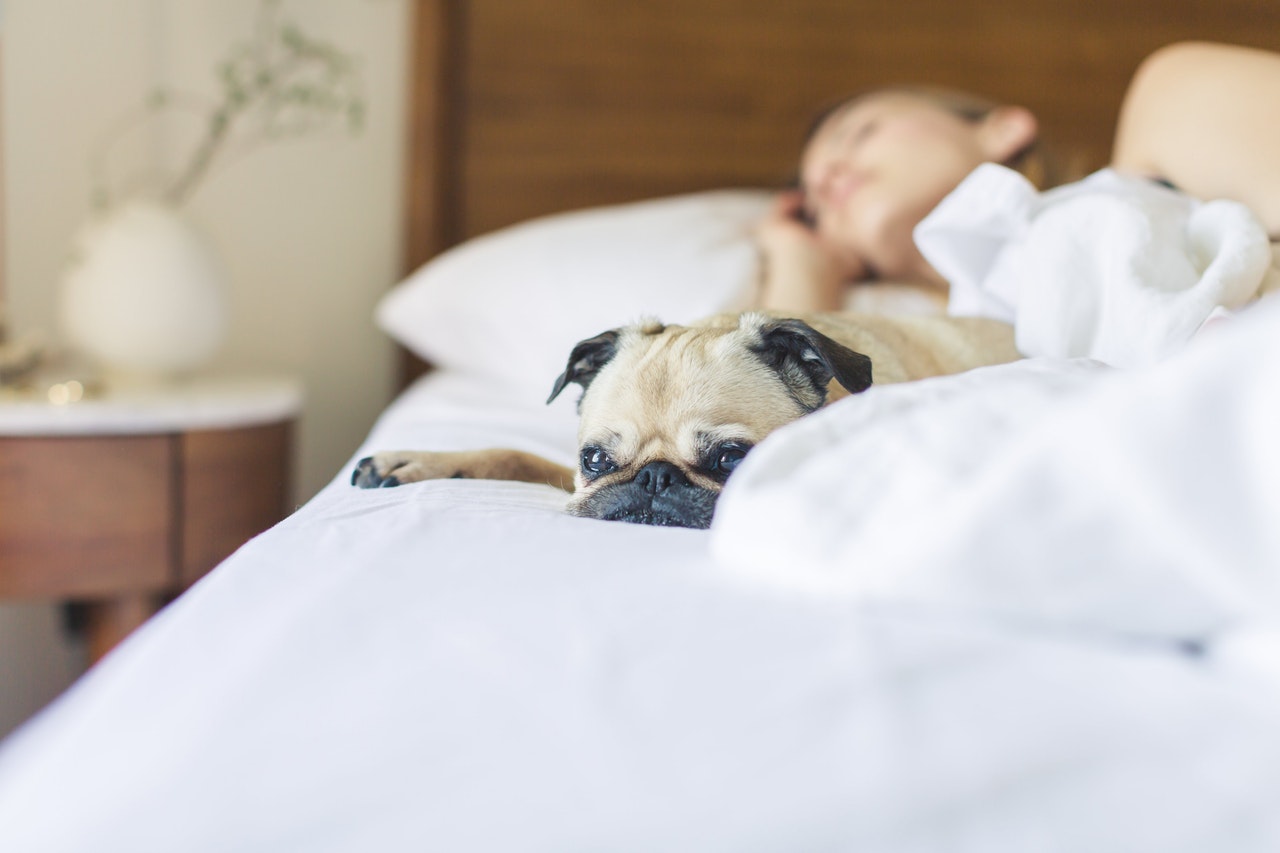Most of us are familiar with the immediate effects stress can have on our lives including headache, muscle tension, fatigue, and stomach upset. Chronic stress can have even larger effects on the body like a higher risk of heart disease, high blood pressure, and a weakened immune system.
Many people who experience stress throughout the day are not aware of its impact on our sleep once it’s time to slow down and rest. If you have a lot going on, you may not be able to turn off your brain at bedtime, making it impossible to fall asleep. This problem can often become cyclical, with those who suffer from chronic stress having worse sleep quality overall making it more difficult to function during the day.
If you aren’t sleeping enough at night and are more tired during the day, your body will continue to produce even more stress hormones. Those stress hormones interrupt your normal sleep cycle, making you more tired the next day, producing more hormones and so on. These hormones can peak in the afternoon and early evening which can disrupt sleep even more.
How do you know if your sleep problems are related to stress? Take a look at your lifestyle. Did the sleep problems happen around the time of a big event like a promotion at work or family issue? Do you notice your sleep improve on the weekends or when you take a vacation? The good news is, there are some things you can do to help alleviate stress and improve your sleep.
Way to Reduce Stress for Better Sleep
- Remove electronics – We are very connected these days, at all times of the day. Looking at your work email right before bed is never going to contribute to restful sleep. Try setting a cutoff time for yourself 30 minutes before bed when you will set down the phone and not look again until morning. The blue light from electronics can also disrupt our normal sleep cycles.
- Make a list – If you’re someone who has a hard time unwinding and tends to worry about everything you need to do the next day, try writing down the things that are top of mind and then setting it aside. Writing things down can be relaxing and getting them out of your mental space before bed can help with stress.
- Exercise – Research has long shown the connection with physical activity and improved sleep (1). Poor sleep tends to lead to a reduction in exercise, so these two habits can support each other. Try to get at least 30 minutes of moderate activity or even just go for a quick walk to get those good endorphins going.
- Try meditation – Meditation has been shown to help with the body’s stress response, so taking some time at the end of the day to do a calming breathing exercise or visualization can help the body relax and prepare for sleep.
- Try an adaptogen – Ashwagandha, an adaptogen and known for its ability to help the body regulate stress and reduce the production of cortisol in the body. Ashwagandha can be taken before bed without sedative properties but can help you relax a bit to fall asleep and sleep more soundly.*
*These statements have not been evaluated by the Food and Drug Administration. This product is not intended to diagnose, treat, cure, or prevent any disease.
This information is not intended as a substitute for the advice provided by your physician or other healthcare professional or any information contained on or in any product label or packaging. Do not use the information from this article for diagnosing or treating a health problem or disease, or prescribing medication or other treatment. Always speak with your physician or other healthcare professional before taking any medication or nutritional, herbal or homeopathic supplement, or using any treatment for a health problem. If you have or suspect that you have a medical problem, contact your health care provider promptly. Do not disregard professional medical advice or delay in seeking professional advice because of something you have read in this article.

